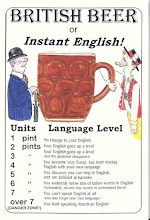BOOKING A HOTEL
1. ACCOMMODATION
You can find a hotel in London very easily through the internet. In Great Britain there are different kinds of accomodation:
Generally you'll find the most luxurious hotels around Mayfair and cheaper ones in Bayswater and Earl's Court - however both areas are very accessible.
A less expensive way of seeing London is to stay in one of the many bed and breakfast guest houses, also known as B & B. The streets around Victoria and Paddington railway station are full of pleasant reasonable B & Bs.
Young travellers, however, often stay in cheap backpackers or youth hostels.

Look for accommodation within zones 1 and 2 of the underground. Take note of the best option according to its location, facilities and price.
Is it going to be half-board or just bed and breakfast? Decide which is better for you.
2. AT THE HOTEL RECEPTION. Checking into a hotel
(optional speaking activity)
 You finally got to the hotel. It is time to check in! Decide with your partner who will be the receptionist at the hotel and who will play the part of the guest who is checking in or is enquiring about his reservation or any other doubts he has. Start by preparing your dialogues separately using the model provided in the video below and then practise. Perform it as you record your conversation.
You finally got to the hotel. It is time to check in! Decide with your partner who will be the receptionist at the hotel and who will play the part of the guest who is checking in or is enquiring about his reservation or any other doubts he has. Start by preparing your dialogues separately using the model provided in the video below and then practise. Perform it as you record your conversation.3. BREAKFAST
You may prefer to grab a coffee at your hotel, but for something different head to one of London's many cafés, also known as greasy spoons, where a traditional English breakfast is just a few pounds. What do Londoners usually have for breakfast? Listen to the following podcast and find out.
What are the main ingredients in a full English breakfast? Talk about it in your oral presentation You can watch a video which contains all the information you need by just clicking on the following image:



Cap comentari:
Publica un comentari a l'entrada